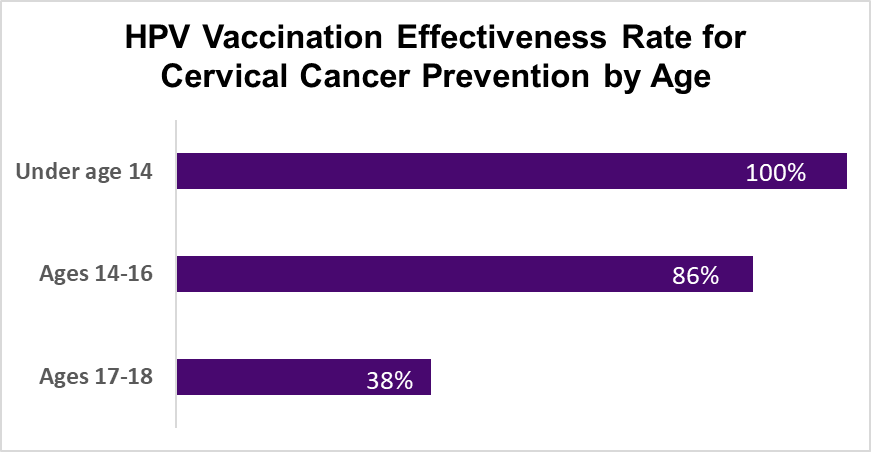HPV vaccines prevented cervical cancer especially if administered before age 14
February 27, 2024
Source: Palmer, T et al JNCI Journal of the Nat Cancer Inst, January, 2024 LINK
Cervical cancer remains a major cause of death of young women, and head and neck cancer is a major cause of death in middle age and older people. Both are often caused by human papillomavirus (HPV) which is now a preventable disease.
A national study in Scotland showed that among the 29,555 girls vaccinated prior to age 13 in that country, not a single one was diagnosed with cervical cancer over decades of observation. Cervical cancer was diagnosed in about 3.2 per 100,000 person years who were vaccinated at age 14 or later, and 8.4 per 100,000 person years in those who were unvaccinated. Vaccination rates in Scotland were not related to wealth of place of residence, although those from more deprived areas benefited more from HPV vaccination.
The US Centers for Disease Control and Prevention (CDC) just reported that just 39% of US children ages 9-17 had received “at least one vaccine.” The HPV vaccination is now recommended up to age 45 for those who were not vaccinated earlier. There is no evidence that young teens who are vaccinated are more likely to engage in earlier sexual activity. Another study just published in Lancet Regional Health showed that parental intent to get teens HPV vaccination was lower in socioeconomically advantaged groups.
Source: Villarroel, MA et al, CDC National Center for Health Statistics February, 2024 LINK
Implications for employers:
Many US teens are not gaining the benefit of protection against future cancer from HPV vaccines, and most US teens who are vaccinated would benefit from being vaccinated earlier.
Low use of this effective vaccine is likely to lead to higher medical costs in employer sponsored health insurance in coming decades.
Employers can remind their employees that childhood vaccinations are covered without cost sharing
Thanks for reading. You can find previous posts in the Employer Coverage archive
Please “like” and suggest this newsletter to friends and colleagues. Thanks!
Tomorrow: Swiss study shows that e-cigarettes can aid smoking cessation




